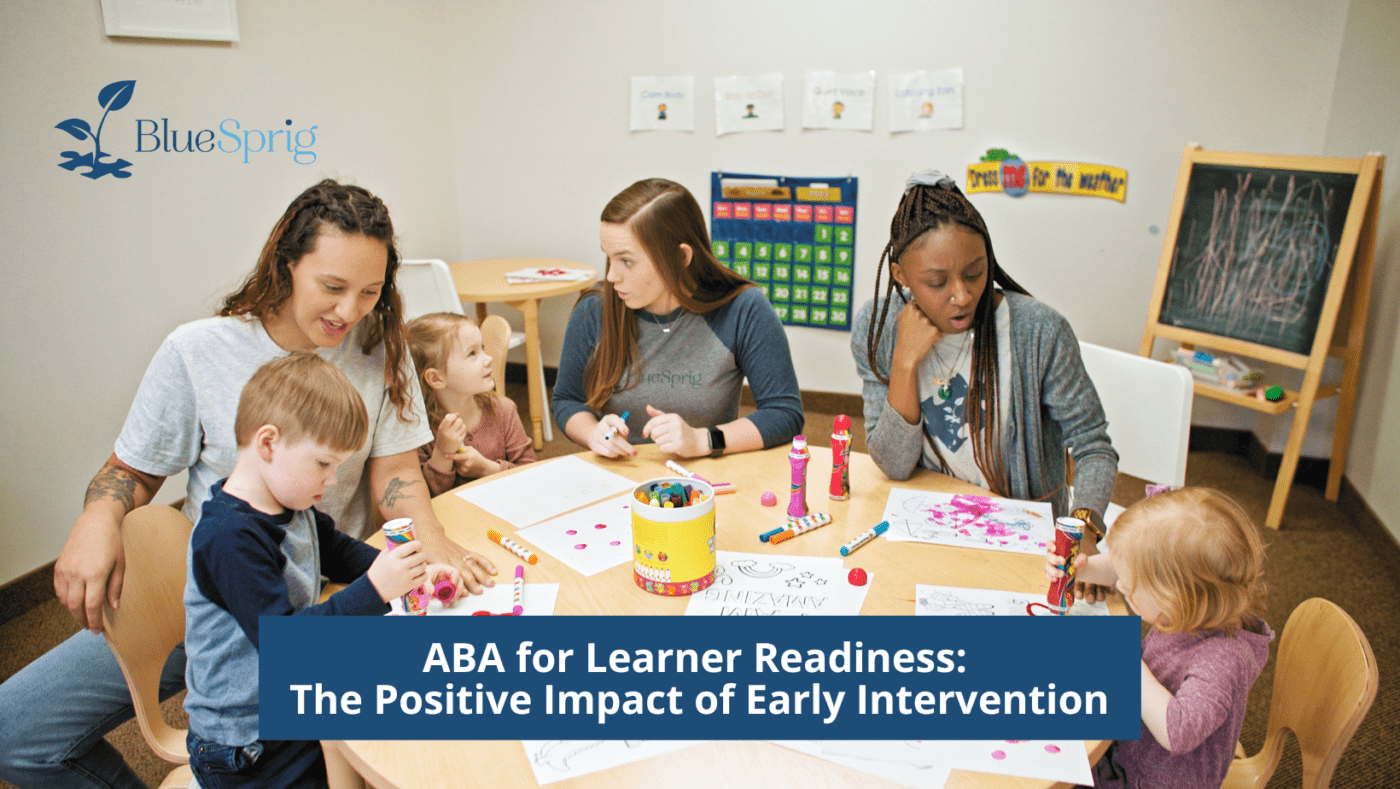Early intervention, or EI, is important in helping young children with autism achieve learner readiness. ABA, or Applied Behavior Analysis, is a method of early intervention that has been proven to be effective in helping develop skills and increase learner readiness. In this blog post, we will discuss the positive impact of early intervention using ABA and how it can help children with autism reach their learning goals.
Understanding ABA and Learner Readiness
ABA is based on the understanding that behavior is learned and can be modified through reinforcement and consequences. ABA programs are individualized to meet each child’s specific needs, aiming to increase their readiness for learning. This involves identifying the child’s strengths and weaknesses and targeting areas of development such as communication and social interaction. By addressing these areas early on, ABA can help children develop the necessary skills and behaviors for success in school and life.
Key Components of Effective EI Programs in ABA
When it comes to effective early intervention programs in ABA, there are key components that contribute to their success. One important component is individualization. At BlueSprig, we tailor interventions to meet the specific needs of each child, recognizing that every child is unique. This allows for targeted support and intervention focusing on the areas requiring the most attention. Another key component is consistency. Consistent implementation of interventions and strategies is crucial for progress and growth. Additionally, ongoing monitoring and assessment are important components. Regular assessment and family guidance help track a child’s progress and identify areas that may need additional support or adjustments to the intervention plan. These key components work together to create effective EI programs in ABA that support young children in achieving learner readiness.
Importance of Learner Readiness
Learner readiness is important for children with autism because it empowers them to overcome challenges and reach their full potential. With learner readiness, children with ASD can improve their communication skills, engage in meaningful social interactions, and succeed in a school setting. It sets the stage for their future growth and development, enabling them to lead fulfilling and independent lives.
Early intervention using ABA can greatly contribute to learner readiness by providing individualized support, targeting specific areas of development, and fostering a strong foundation for learning, unlocking their full potential. At BlueSprig, we will provide compassionate support for children with autism to thrive and make meaningful progress in all aspects of their lives. We will work on joint attention skills, imitation skills, and listener-responding skills. An example of this learning style would be singing fun songs that involve hand-motor skills to have the clients interact while singing and listening.
Getting Started with BlueSprig
The needs of each child vary and because of that, we provide services in a manner that is most suitable to fit the needs of each client and their family. Our staff can work with clients in a variety of settings such as home, schools, virtually, and any of our 140+ centers across the United States. To learn more about what to expect in ABA therapy at BlueSprig, check out this resource.
Through clinical best practices, diligent clinical support and compassionate staff, we are continuously changing the world for children with autism. For more information about services or to get started, visit bluesprigautism.com/locations. Join the BlueSprig family and see firsthand how our services can impact you and your loved one’s life for years to come.
